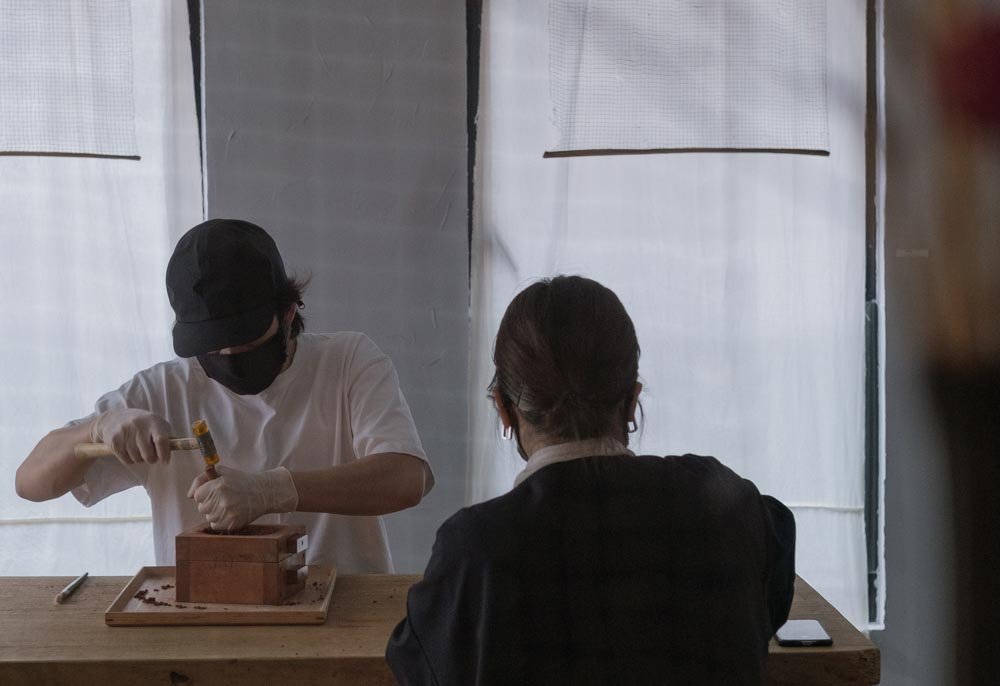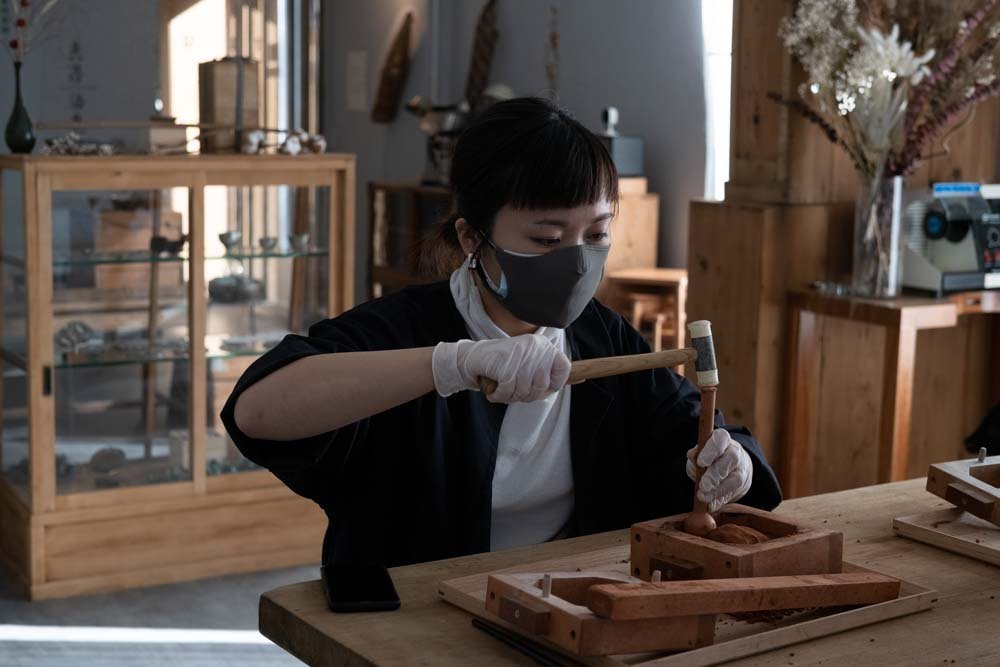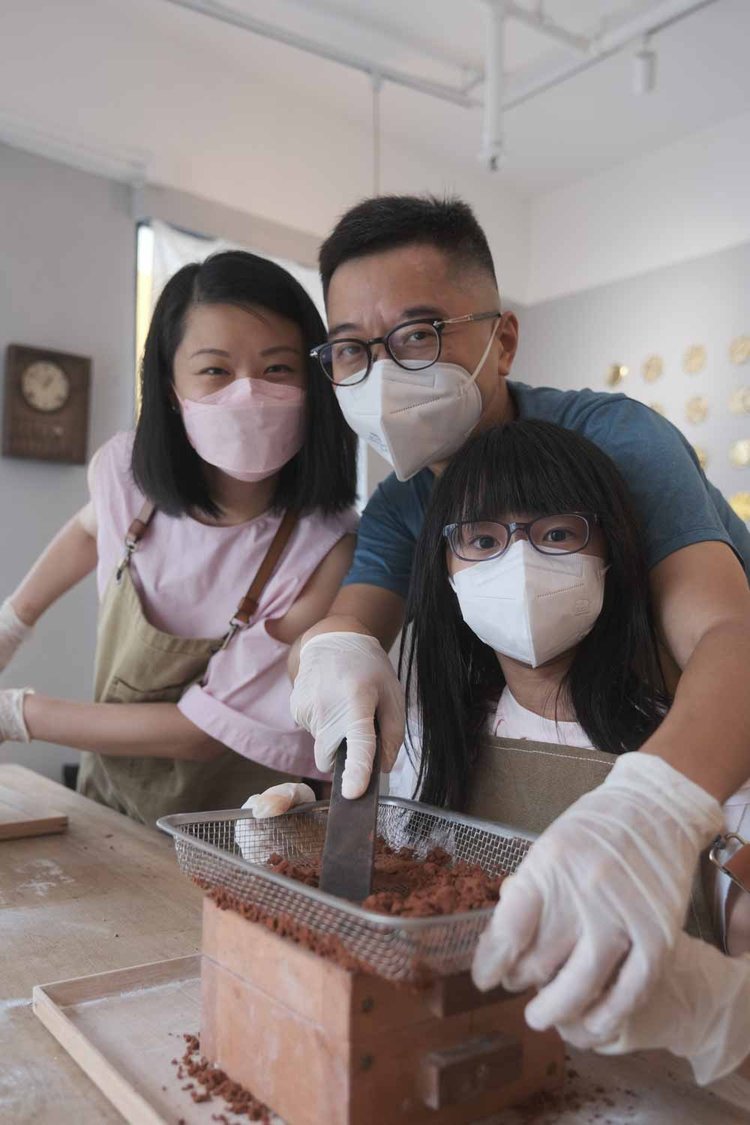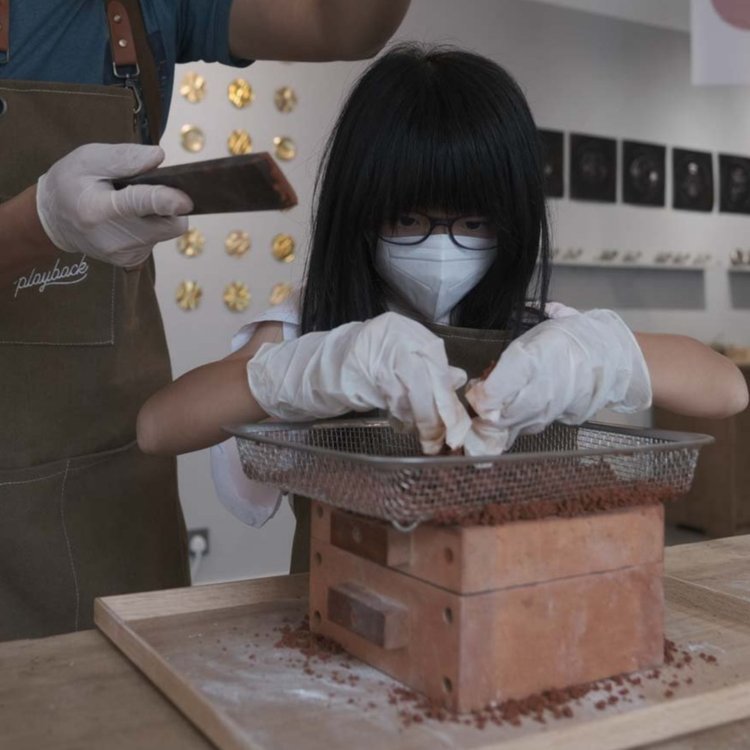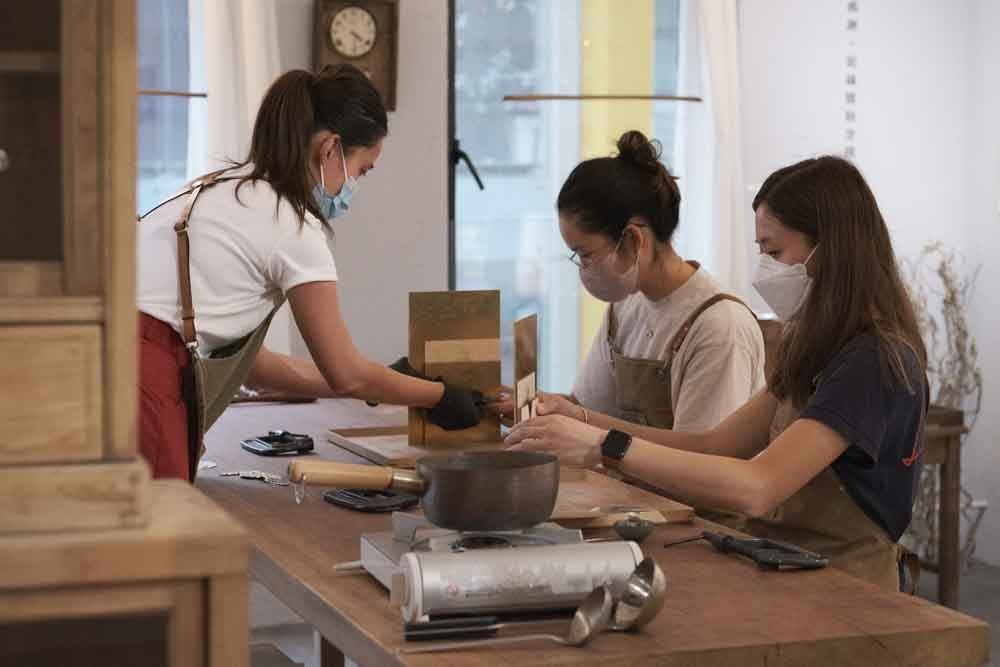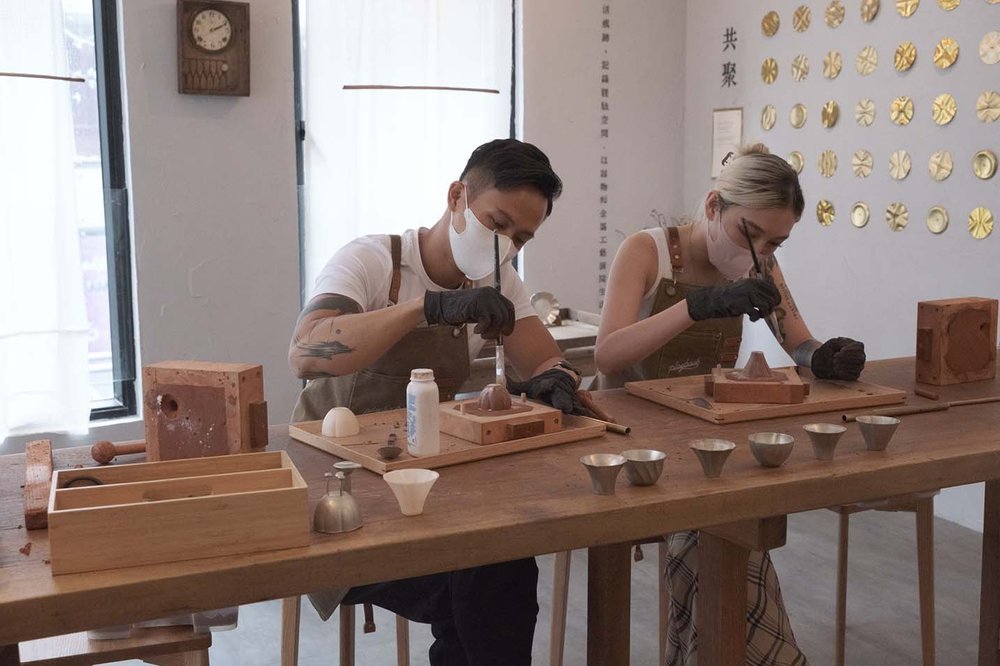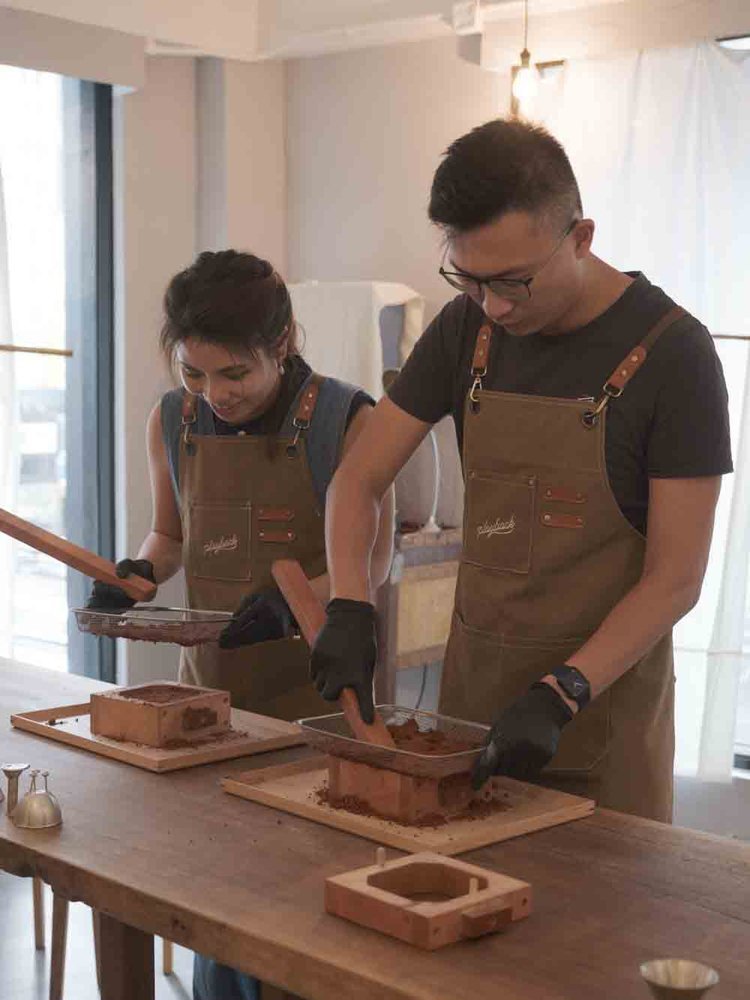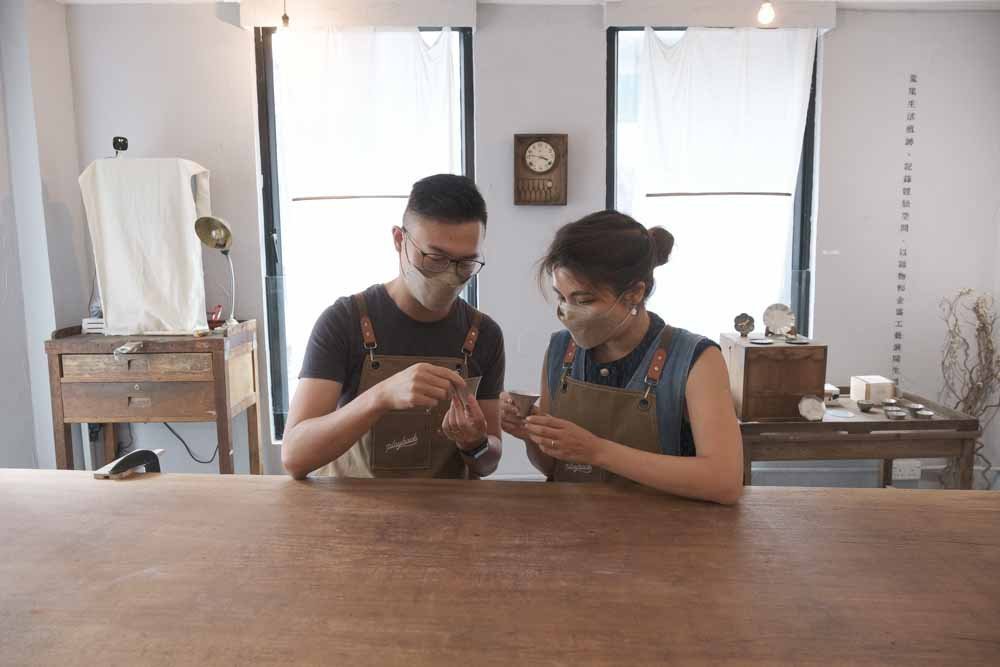Pure Tin Sake Cup Casting
Workshops
Life is slowly accumulating like fine sand, using metal to freeze the beautiful moment and fill the blank.
About Sand Casting
-
Sand casting is the easiest-to-learn and most fun craft among many tin art skills. Both adults and kids can create practical and elegant living utensils.
By casting unique textures that can be replicated on utensils, we have designed sake cups in different shapes, then cast into silvery white pure tin utensils.
-
To taste the various layers of sake
To extend the warm or cool feeling of drinks
It is said that tin has the effect of absorbing impurities and odors in water, which can make wine taste sweeter and smoother
Symbolism:
“Tin Wedding” symbolises a 10th Wedding Anniversary, representing the gentleness and tenacity in a relationship
-
Tin is a soft metal, please avoid using hard object or applying too much pressure on the utensil while cleaning
Pure tin utensils are intolerant to acid and alkaline, so they are not suitable for containing soda, lemon juice and vinegar
Pure tin has a low melting point and boiling point. High or low temp. may destroyed it’s shape or appearance
Recommended usage temperature: at room temperature / ~20°C or slightly above/below
Do not store the utensils in refrigerator and avoid direct contact with fire
Oxide would be formed on the surface of the pure tin utensils after long exposure to air, using baking soda and water that are mixed into toothpaste texture would help cleaning with the oxide, and brighten the surface.






